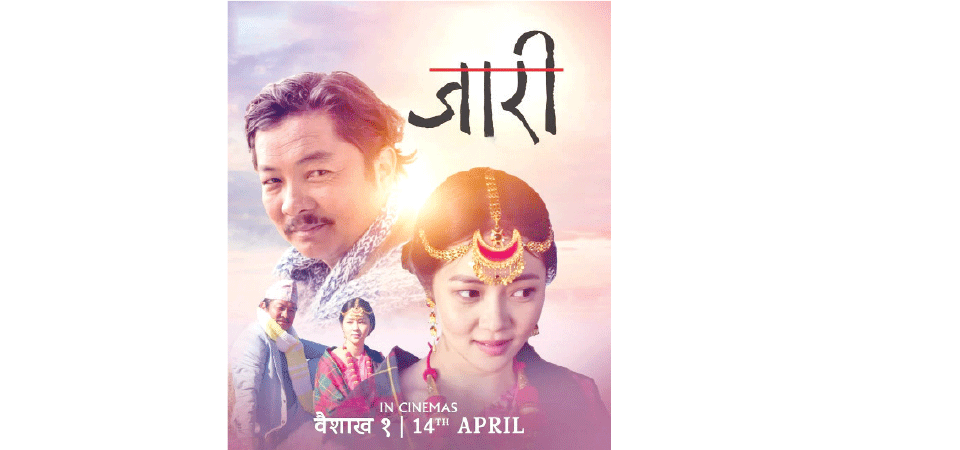- Wednesday, 18 February 2026
Jaari review: Mirror of Limbu culture
By Renuka Dhakal,Kathmandu, Apr.20: Jaari is a tradition prevalent in almost all communities of Nepal. It refers to the practice of paying compensation to the former husband of one’s wife.
A film based on this practice is currently being screened in the cinema theatres with the same name. It is all about the Jaari practice prevalent in the Limbu community of eastern Nepal.
Jaari, directed by Upendra Subba and produced by Ram Bahadur Gurung, is garnering an overwhelmingly positive response from both the audience and critics.
With Dayahang Rai and Miruna Magar in the lead roles, the film has been drawing crowds to the halls right from the first day of its screening.
Namsang (Dayahang Rai) and Hangma (Miruna Magar), both from Limbu caste, are married for five years. But they have not had a child yet, which is causing distress in their relationship.
Hangma has been subjected to both physical and verbal abuse from Namsang. He accuses Hangma of being responsible for their infertility. Hangma shows anger and Namsang goes to the extent of making a threat that he will marry another woman to father a child.
Unable to tolerate the constant quarrel, Hangma leaves Namsang and returns to her parents’ home. Ego prevents Namsang from apologising to her and bringing her back home.
The film portrays the Palam dance, a traditional dance popular in the Limbu community. While Hamgma was living with her parents, she met Serang (Roydeep) while dancing Palam at a fair held in the village. Serang won Hamgma in the Palam dance competition and they got married.
Upon learning that Hangma had eloped with Serang, Namsang and his family demanded Jaari, a form of compensation, from Hangma's parents. However, as they were unable to pay the demanded compensation, Hangma decided to become a servant in Namsang's home to pay the Jaari. This is how the story of the film further develops.
Numerous exciting turns and twists in the relationships between the two main characters make the film more interesting.
One of the strongest aspects of this film is its smooth and straightforward storytelling. The audience need not apply extra effort to comprehend the plot. The spontaneous flow of the storyline holds the audience spellbound throughout the entire film.
Acting of both Dayahang Rai and Miruna Magar looks quite natural and seamless.
Roydeep Shrestha has also done brilliantly in the film.
Shrestha's brief yet impactful appearance in the movie completely upends the plot and leaves a lasting impression on the audience. He portrays a compelling character that captivates the audience.
Bijaya Baral's character brings a comic element to the movie and his performance is consistently entertaining throughout the film.
One of the strengths of the movie is the skillful use of symbolism to convey deep desires and emotions in a concise manner. The background music also plays a crucial role in creating an organic flow to the film.
Despite being his debut feature film, Upendra Subba has demonstrated a potential to shape the industry's future through this movie.
It is often said that films are a mirror of society, and Jaari looks true to this saying. Subba, through this movie, has presented an honest and simplistic portrayal of the Limbu culture. At the meantime, the film stresses the need for preserving some of the Limbu cultures like Palam Dance, and Chyabrung music (dance), which are on the verge of extinction.
The film will not only help transfer the culture to the younger Limbu generation, but also illuminates the diversity of the country, enabling all people to understand it better.
This film provides a glimpse into the vast cultural heritage of the Limbu community, helping viewers gain a better understanding of their traditions and way of life.

















